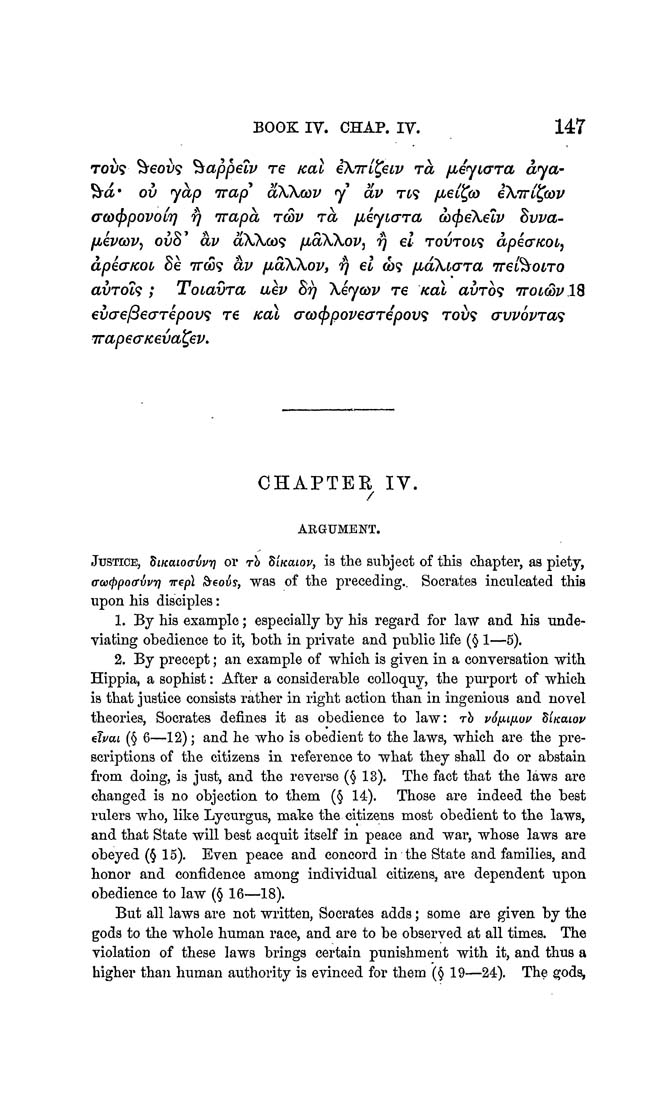BOOK IV. CHAP. IV. 147
Tot'9 ^eoifs ^appelv Te Kal iXTrl^etv Td pteytaTa dya-
^d* ov ydp Trap* dXXcov y dv Tts ptei^oo iXTri^cov
acoippovoiy fj Trapd t&v Ta ptiytaTa &(peXelv Svva-
ptivcov, ouS' dv dXXcos ptdXXov, fj el Tomots dpiaKot,
dpiaKOL Se tt&s dv ptdXXov, fj el &s ptdXtaTa Trel^otTO
avTols ; Totama aev Sy Xiycov Te Kal avTbs Trot&v.IS
evae^eaTipovs Te Kal acocppoveaTepovs tovs avvbvTas
TrapeaKeva^ev,
CHAPTER IV.
/
ARGUMENT.
Justice, diKaioo-dpy] or rh BtKaiop, is the subject of this chapter, as piety,
(T(a(ppoffvvi) irepl ^eo6s, was of the preceding.. Socrates inculcated this
upon his disciples:
1. By his example; especially by his regard for law and his unde-
viating obedience to it, both in private and public life (§ 1—5).
2. By precept; an example of which is given in a conversation with
Hippia, a sophist: After a considerable colloquy, the purport of which
is that justice consists rather in right action than in ingenious and novel
theories, Socrates defines it as obedience to law: rh pofiLfjLop diKaiop
elpai (§ 6—12); and he who is obedient to the laws, which are the pre¬
scriptions of the citizens in reference to what they shall do or abstain
from doing, is just, and the reverse (§ 13). The fact that the laws are
changed is no objection to them (§ 14). Those are indeed the best
rulers who, like Lycurgus, make the citizens most obedient to the laws,
and that State will best acquit itself in peace and war, whose laws are
obeyed (§ 16). Even peace and concord in the State and families, and
honor and confidence among individual citizens, are dependent upon
obedience to law (§ 16—18).
But all laws are not written, Socrates adds; some are given by the
gods to the whole human race, and are to be observed at all times. The
violation of these laws brings certain punishment with it, and thus a
higher thaii human authority is evinced for them (§ 19—24). The gods,
|








